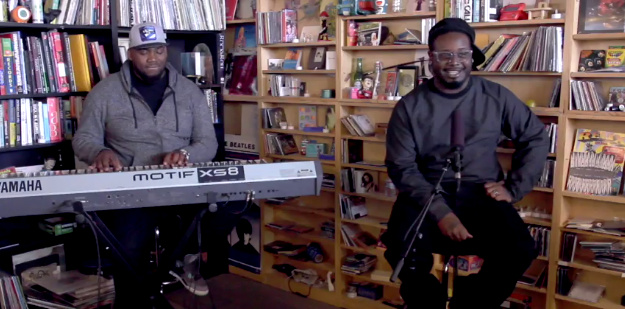What with all those showboating fire-fighters, paramedics and hostage negotiators, it can sometimes be easy to forget that being a national newspaper columnist is the hardest job in the world.
Each and every week, Britain’s columnists are at the coalface of casual observation, toiling away to transform their banal grumblings into 800-word slabs of pure, unadulterated journalism. Cynics say they’re overpaid, but in this media-saturated, attention-starved age, you can hardly put a price on 10,000 Facebook likes and a retweet from @Glinner.
Videos by VICE
Chief among the lefty contingent is Britain’s favourite bouffant grump Charlie Brooker, whose weekly missives for The Guardian have — over the course of a decade — evolved from gleefully embittered TV reviews into state-of-the-nation decrees, ranking alongside Have I Got News For You’s picture-spin quiz as a key news source for the UK’s Daily Show demographic. Last month alone, he trained his signature similes on subjects as wide-ranging as Daily Mail hate campaigns (“like watching an old man ineffectually waving his fist as they concrete the duckpond and put up a Nando’s”), James Delingpole (“like a naughty boy who has just blown off through the headmaster’s letterbox”) and the norovirus (“like Piers Morgan, but invisible”).
Of course, with a new set of paragraphs due every seven days, they can’t all be winners. Assuming you’re not Stewart Lee, who seems to have been given carte blanche to write whatever absurdist tract first comes to mind in his occasional Observer column, your editor will probably expect you to deliver roughly the same result each week. For Brooker, Jeremy Clarkson, Richard Littlejohn and so many others, that means bile. And plenty of it.
And so, in the land of acerbic newspaper column, scale is often forgotten. Annoyances both big and small are deemed worthy of equal scorn, leaving the scorn itself feeling oddly redundant. On Brooker’s Guardian contributor profile, heartfelt pieces on the 2011 Norway attacks and the US election race sit alongside laboured indictments of cupcakes and 3D television.
The same was somewhat true of last year’s Black Mirror, a three-part Channel 4 series in which Brooker set out to do for social networking what Tales of the Unexpected did for suburban adultery and creepy old blokes in caravans. The show was blessed with a perfect title – an angular two-word allusion to the reflective surface of a sleeping computer screen that instantly brought to mind the uncanny junction between technology and humanity where Black Mirror was set. But as with his written work, Brooker’s smaller ideas tended to undermine his larger ones.
The trailer for , the first episode in the new series ofThe show’s low point was 15 Million Merits, a blandly on-the-nose takedown of reality television that was almost indistinguishable from American Dreamz, or any of the countless other X Factor satires that have been doing the rounds since the format first went pandemic. In Brooker’s telling, the show’s contestants were literally prisoners, routinely drugged and forced into degrading acts by their power-hungry judges. It might have been material enough for one of those Daily Mash articles that people insist on passing around Facebook, but as an hour-long drama, it was a try-hard mess.
But the first series did have its moments of gimlet-eyed insight, and the second series of Black Mirror – which began last night in Channel 4’s coveted post-Gypsy Wedding slot – has so far avoided anything quite so obvious. Instead, what aired last night was perhaps the series’ finest hour to date.
In the opening minutes of Be Right Back, as we were introduced to a young couple struggling to put aside their iPhones and concentrate on one another, you’d have been forgiven for assuming we were in for a lengthy discourse on Disconnection In The Age Of Vine from the all-powerful Overlord Brooker. And let’s be honest: that’s probably how the column would have panned out, albeit with the addition of a colourful simile comparing the couple’s relationship to a moth banging its head into the window of a Currys Digital.
Instead, the man-half of the couple died, the woman was told there might be a way to get around that and Be Right Back mutated into the sort of thing you’d expect to see running to feature length at a Scandinavian film festival. Not because it needed to be any longer than it was, but because most filmmakers wouldn’t have been able to let such a strong premise go after 60 minutes.
I won’t ruin the twists and turns while the episode still has six perfectly good days left on the front page of 4OD, but I will say that it only briefly resembled a slightly goofy Twilight Zone episode before blossoming into a deeply affecting two-hander about loss, grief and compromise – not bad, going from a writer whose principle TV offerings up until this point have been Dead Set and Nathan Barley. Best of all: despite Channel 4’s strictly regimented ad breaks, which divided Be Right Back into four uniform chunks, it never felt like the work of a writer on deadline.
Or, as Brooker himself might put it, it never felt like he was a merman, sprinting towards an aquarium, desperate to reach his destination before his gills gave out and left him for dead. Maybe it’s time he escaped the columnist bile cycle.
Follow Charlie on Twitter: @ultraculture
More TV:
An Interview with the Filmmaker Adam Curtis
The Television X Awards: Partying with Porn Stars and Getting Robbed by a Minor Celebrity

